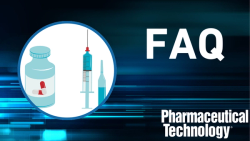
OR WAIT null SECS
- About Us
- Advertise
- Contact Us
- Editorial Info
- Editorial Advisory Board
- Do Not Sell My Personal Information
- Privacy Policy
- Terms and Conditions
© 2026 MJH Life Sciences™ , Pharmaceutical Technology - Pharma News and Development Insights. All rights reserved.
Vaccine Supply Dispute Between EU and AstraZeneca Continues
The dispute between the European Commission (EC) of the European Union and pharmaceutical company AstraZeneca continues.
The dispute between the European Commission (EC) of the European Union and pharmaceutical company AstraZeneca continues, as the head of the EC, Ursula von der Leyen, calls on AstraZeneca for the publication of the confidential vaccine contract on Friday Jan. 29, 2021.
According to multiple news sources, von der Leyen has specified, in a radio interview with a German station (Deutschlandfunk), that the contract between the EU and AstraZeneca is “crystal clear” and contains “binding orders.” The dispute concerns the reduced supply of the AstraZeneca/Oxford COVID-19 vaccine to the EU, which is being attributed to production issues at plants in the Netherlands and Belgium.
Currently, AstraZeneca has revealed that it will only be able to supply a quarter of the originally agreed number of doses before the end of March as a result of the production problems being faced at the European plants. However, EU Health Commissioner, Stella Kyriakides, has insisted that the company utilize production facilities in the United Kingdom to help meet their contractual obligement for doses to the EU.
Pascal Soriot, CEO of AstraZeneca, has been quoted in La Repubblica, an Italian newspaper, on Jan. 26, 2021 as stating that the contract between the company and the EU only specifies the company makes its best effort to provide the doses of vaccine, rather than a guarantee for a set number of doses in a given deadline. “It's not a commitment we have to Europe: it’s a best effort, we said we are going to make our best effort,” he said.
In remarks published on EC’s website on Jan. 27, 2021, Kyriakides responded by specifying, “The view that the company is not obliged to deliver because we signed a ‘best effort' agreement is neither correct nor is it acceptable. We signed an Advance Purchase Agreement for a product which at the time did not exist, and which still today is not yet authorised. And we signed it precisely to ensure that the company builds the manufacturing capacity to produce the vaccine early, so that they can deliver a certain volume of doses the day that it is authorized.”
At the time of writing, the AstraZeneca/Oxford vaccine has not received regulatory approval in Europe.
Sources: Deutschlandfunk, La Repubblica, EC, BBC



